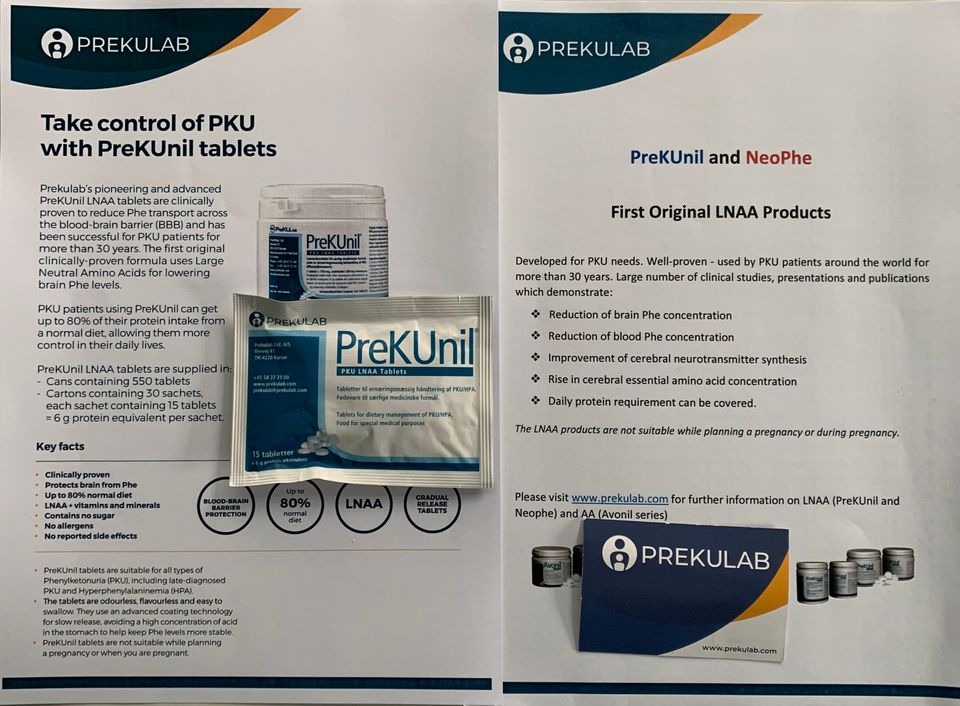What is LNAA?

Visitors to the joint ESPKU & NSPKU conference this year will have noticed the stand from PREKULAB, which I hadn’t seen at previous UK conferences. They had samples of PreKUnil, their PKU LNAA tablets, on site. But what are LNAA tablets?
I wrote about LNAA in my book, Living with PKU, and the excerpt on LNAA is published below. Please note that LNAA tablets are not available on the NHS in the UK, though the team at PREKULAB are investigating that possibility.
Superb feedback on my PKU book
Huge thanks to those clinicians, families, and people with PKU who introduced themselves at the conference. Many told me that the explanations in the book were clear and that the helpful format of Living with PKU had helped them. It is the reason I wrote the book and am thrilled to hear it is fulfilling that aim!
Many told me that the explanations in the book were clear and that the helpful format of Living with PKU had helped them.
Excerpt from Living with PKU
Large Neutral Amino Acid (LNAA) treatment for PKU
This is a supplementary therapy for PKU which is in use in some European countries. It is particularly aimed at those with mild PKU. The mechanism in LNAA treatment relies on the competition between molecules for passage from the blood into the brain. This passage is protected by the blood/brain barrier, which acts like a security system. Remember, it is the phe in the brain which causes problems in PKU. We use the phe in the blood to measure those levels, as we can’t yet measure the amount of phe directly in the brain.
Phe is one of nine LNAA’s which pass across the blood/brain barrier. In people with PKU, the high levels of phe in the blood mean that a higher percentage of the LNAA’s crossing into the brain are phe. The idea of LNAA treatment is to change the percentage of phe molecules passing into the brain by increasing the levels of other LNAAs in the blood. This would return the ratio of LNAAs in the blood closer to equilibrium, which removes the advantage which phe molecules have at the blood/brain barrier. A study published in 2020 found that adding in LNAA supplements along with a restricted diet therapy tended to improve both adherence to treatment and the quality of life for those who participated (Burlina, et al., 2020).
LNAA could, in theory, be administered alongside the restricted diet therapy or other treatments for PKU. However, the difficulty lies in proving the effect. For decades, we have measured the severity of someone’s PKU and the possible effect on their brain through blood phe levels. In LNAA treatment, the idea is to remove this relationship so that blood phe levels no longer provide a window on the amount of phe reaching the brain. This removes the main objective scientific measurement relied on over decades of PKU treatment. So, how do we prove that LNAA treatment is safe through objective measures? I have had no experience with LNAA treatment, but it is considered an option for adults in European countries such as Denmark. I suspect that a key hurdle in government commissioning elsewhere will be the need to find a clinical measurement of the treatment benefit, as blood phe measurements may not be considered an effective measure for this LNAA treatment.

Member discussion